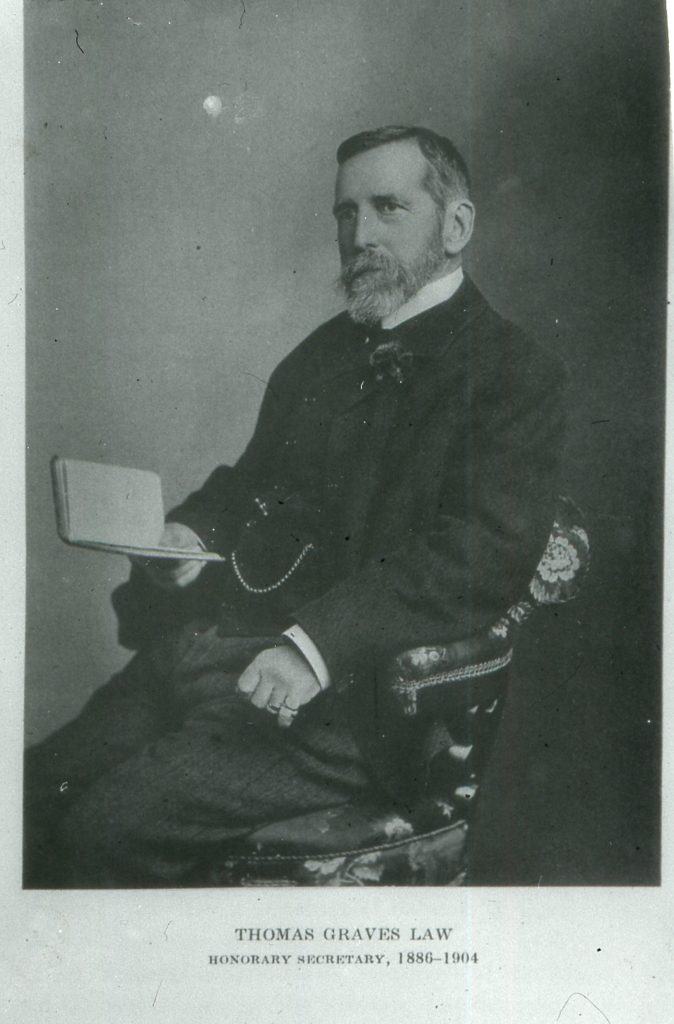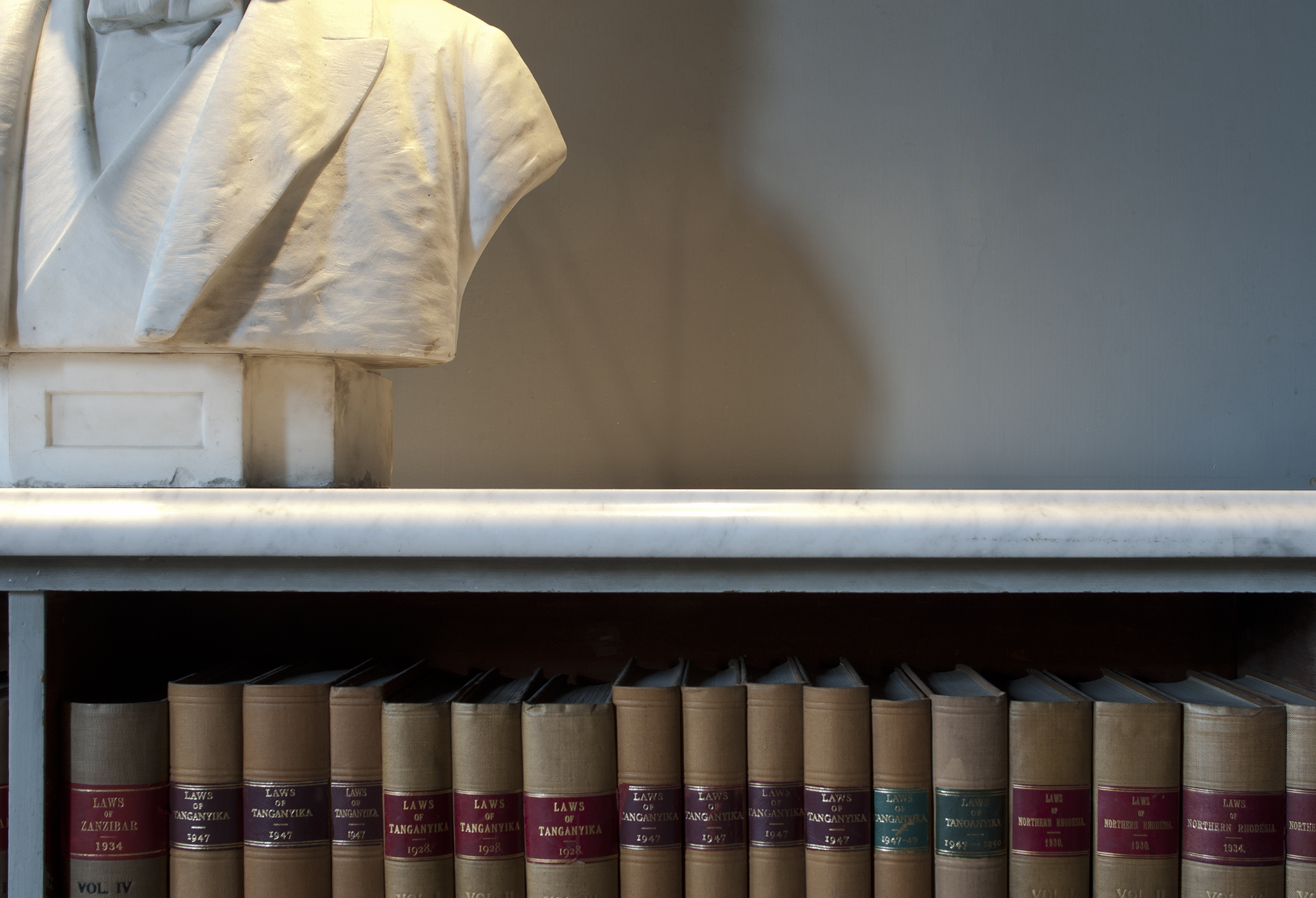
Thomas Graves Law was born into an aristocratic, scholarly and religious family and followed his father into the Roman Catholic Church at the age of 15, joining the Brompton Oratory in London four years later. Over the next two decades he built a formidable reputation as a scholar in his own right and was largely responsible for the building of the excellent library at the Oratory.
His loss of faith and departure from the Roman Catholic Church in the late 1870s brought about a dramatic change in his life, bringing him to Edinburgh at the urging of the past and future Prime Minister William Gladstone to take up the reins at the Signet Library following the death of David Laing. He would prove a dedicated and energetic librarian, with the look and the administration of the twentieth century Signet Library owing much to his reforms.
Law’s legacy at the Signet Library takes three forms. His re-cataloguing of the stock, which was completed by 1891, would prove the basis for the management of the Library until the beginning of the 1960s. His expansion of the library’s shelved capacity transformed the look of the Lower Hall, and the West Wing Extension of 1900-1902 was completed under his supervision.
Nevertheless Law the scholar soon made a mark on the intellectual life of Edinburgh, where he was the founding secretary of the Scottish History Society and the author of an enduring valuable range of material concerning the history and politics of the Scottish Reformation, including the chapter on Mary Queen of Scots for the Cambridge Modern History, and books including A Calendar of the English martyrs of the sixteenth and seventeenth centuries, The Catechism of John Hamilton, A historical sketch of the conflicts between Jesuits and Seculars in the reign of Queen Elizabeth and volumes for the Scottish Text Society and Scottish Historical Society.
In his final years he suffered greatly from ill health but remained dedicated to his duties until his death in 1904.

